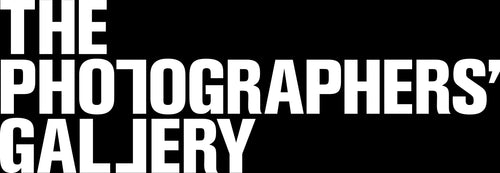Please join us in the Bookshop for an evening dedicated to Charles Fox' publication Buried, unearthing one Cambodian family's tragic journey through buried keepsakes, and thus reflecting on issues of migration and displacement in general.
Charles Fox has invited Vira Rama, Fiona MacLaren, Jennifer Good and Nic Dunlop to join him on a panel on the night to discuss issues raised through his publication.
Buried is an intimate look at the journey of one family, but echoes a much wider experience of refugees.
When the Khmer Rouge entered the city of Battambang, Cambodia, the Rama family, aware of the brutality of the regime, decided to bury one of their most beloved Items, their photographs. After 4 years of hell and the family’s loss of the father the Ramas reunited, retrieved their images and made the long and dangerous journey to the refugee camps of Thailand and eventually to America.
Buried is an intimate look at the experience of one family, but holds a much wider and contemporary understanding of the status of refugees which are often maligned and misrepresented. Through Buried and the family’s own handwritten captions we see the intimacy of struggle, loss and salvation.
The book contains introductions from Cambodian writer Darathtey Din and Human Rights advocate Ou Virak , giving an authenticity often lost in post conflict narrative, as well as essays from British academics Dr Jennifer Good at the London College of Communications and Fiona McLaren from Nottingham TrentUniversity.
Buried is a product of a deep relationship developed with the Rama family who now reside in LA and Charles Fox.
Charles Fox is a photographer who has worked predominantly in Southeast Asia since 2005, with a particular focus on Cambodia. His work has received wide international publicity, including in the BBC, e Sunday Times, GEO Germany, National Geographic, Time magazine, Washington Post, and Wired, among others. His long-term projects focus on the legacy of conflict and colonialism, looking at its multiple manifestations and how the present is a ected by the rulings and actions of the past. His work in Cambodia has led to a range of outputs including the continued research project Found Cambodia (www.foundcambodia.com) which looks at how Cambodian society rebuilt itself post-genocide through photography. Charles is a part-time lecturer in photography at Nottingham Trent University.
The panelists:
Vira Rama was born in 1965 into a privileged, middle-class family in Battambang City, Cambodia. He is the second oldest of seven siblings. In April 1975, his happy childhood was turned upside down when Khmer Rouge came to power. Vira endured four years of hardship and lost his father along with many of his closest relatives.
After the fall of the Khmer Rouge in 1979, he and his family escaped to Thailand and moved through several refugee camps. In 1981, with the help of two American doctors, his family immigrated to the United States and settled in New Orleans, Louisiana. He graduated top of his class from high school and went on to attend the University of New Orleans, where he obtained his Civil Engineering degree. He has been working for the Los Angeles County Department of Public Works for 28 years. Vira currently lives in a suburb of Los Angeles with his wife and two children. His mother and three younger brothers are in the Los Angeles area, his two younger sisters are in Texas, and his older brother is in Louisiana.
Fiona MacLaren is Senior Lecturer in Photography at Nottingham Trent University and Course Leader for MA Photography. Her practice and writing examine the discourse of space and place, the dialectics of memory and critical narratives of identity and belonging. As a practising artist and researcher, she is interested in how the cultural, social ‘and political compose’ and constitute meanings of place.
She was a contributing author to Territories of Identity: Architecture in the Age of Evolving Globalization, which examines the agency of memory in the post con ict landscape. Her most recent writing on a revision of the cultural perception of North can be seen in Northern Light: Photography, Landscape and the North.
Jennifer Good is a writer and Senior Lecturer in History and eory of Photojournalism and Documentary Photography at London College of Communication, University of the Arts London. She is the author of Understanding Photojournalism (Bloomsbury, 2017), and Photography and September 11th:Spectacle, Memory, Trauma (Bloomsbury, 2015), and co-editorof Mythologizing the Vietnam War: Visual Culture and Mediated Memory (CSP, 2014). She writes regularly about the cultural and political histories of photography for magazines and journals. Her ongoing research interests include photography and conflict, psychoanalysis, memory, and power.
Nic Dunlop is an award-winning photographer and writer. His work has appeared in leading publications worldwide. He is author of several books including The Lost Executioner (Bloomsbury) and Brave New Burma (Dewi Lewis). Nic received an award from the Johns Hopkins University for Excellence in International Journalism for exposing Pol Pot's chief executioner. Burma Soldier, an HBO film he co-directed was nominated for an Emmy in 2012. He has worked for aid organisations including Oxfam, ICRC and UNICEF as well as Al Jazeera and the BBC. Nic is represented by United Agents and Panos Pictures in London.
Thu 31 Oct, 18.00 - 20.00, Bookshop
Free event, no Booking.





